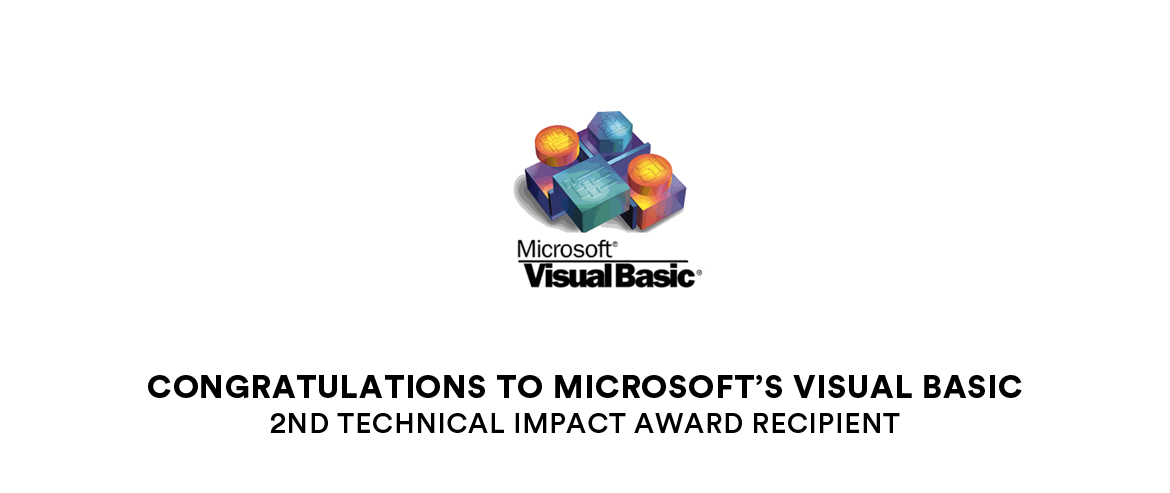The Academy of Interactive Arts & Sciences (AIAS) is pleased to announce Microsoft’s Visual Basic as the recipient of this year’s Technical Impact Award at the 19th D.I.C.E. Awards (#DICEAwards) ceremony on Thursday, Feb. 18, 2016, at The Mandalay Bay Convention Center. Microsoft’s Visual Basic first launched in 1991, and was immediately recognized by the computer science engineering world as one of the most powerful programming languages ever created. It is thanks to this simple and impactful tool that burgeoning industries like the video game industry were able to take advantage of its user-friendly interface and rapid application development to experiment and develop game concepts quickly.
The Technical Impact Award celebrates unique innovations that contribute to the ongoing progress of interactive media in all its forms, and celebrates technical achievements that are expanding and redefining our industry. Honorees are selected from various facets of the industry, which may include software, hardware, and community. The 2016 Technical Impact Award will be presented to Microsoft Visual Basic by Rich Hilleman, member of the AIAS Board of Directors and chief creative director at Electronic Arts. Scott Ferguson, development lead and architect of the original Visual Basic will be accepting.
Alan Cooper, often regarded as the Father of Visual Basic, developed the drag-and-drop feature. His company, Tripod, was approached by Microsoft and Bill Gates to expand that feature into a form building application. Developed under the code name Ruby, it did not include a programming language so Microsoft decided to bundle it with the BASIC programming language. As a result, Visual Basic was born. Games like Rattler Race and Rodent’s Revenge exploded into the scene, which laid the foundation for how games are created and developed today. Similarly, the Visual Basic team is humbled to see game engines like Unity and Unreal were inspired by this platform.
After many successful iterations from Visual Basic 1.0 to 6.0, Microsoft retired support in 2008 and in the meantime created the successor to this popular program, Visual Basic .NET. This program provided many enhancements, all ultimately focusing on what made Visual Basic popular: the rapid application development platform. In 2005 Microsoft also launched the Visual Basic 2005 Express which offered the tool for free for the first time, geared towards students, hobbyists and novices. Visual Basic in all its forms has been used by tens of millions people across the globe.
Click here for the full press release.

